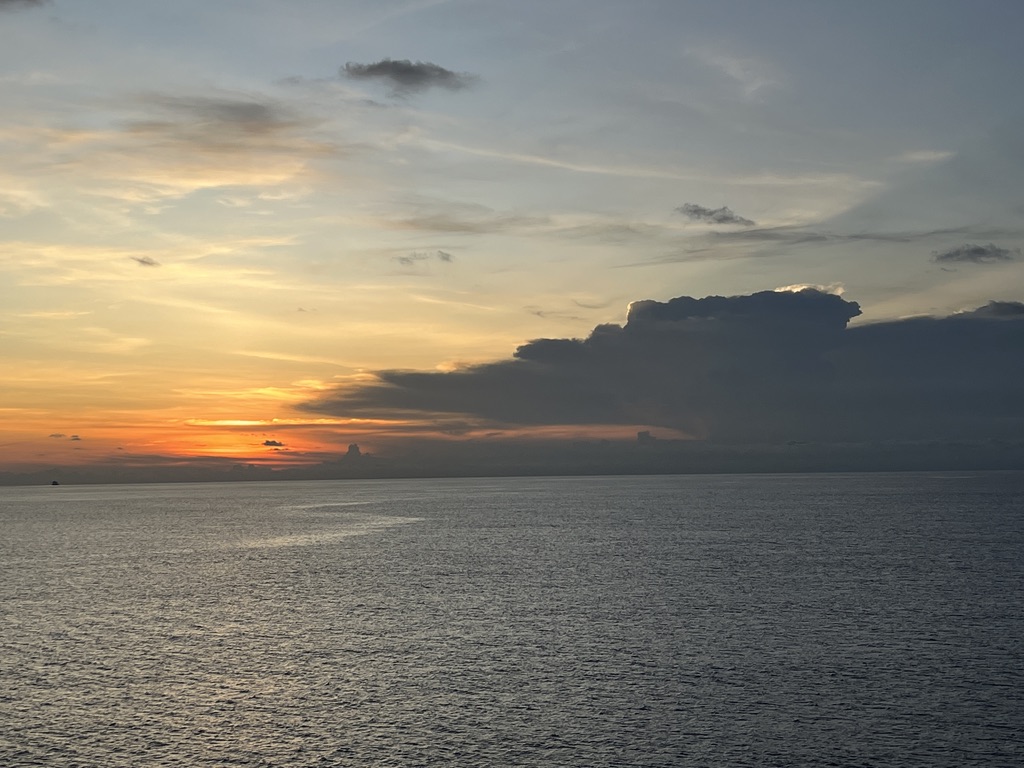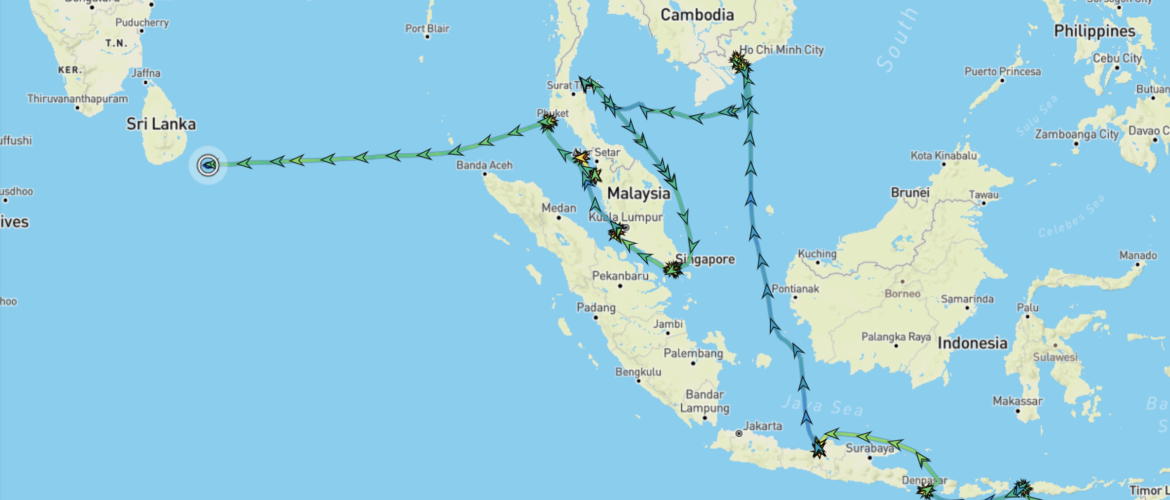Noon Report:
- Location: N 05° 56.30′, E 082° 57.10′
- Speed: 14 knots
- Course: 260º
- Weather: Partly Cloudy/High Thin Overcast
- Temperature: 28 C; 82 F
- Wind: NE 4 knots; 5 mph
- Sea: 1-2 ft swells
Typical Sea Day.
- Up, Exercise, Breakfast
- 9:30 Lecture: “How the Spice Trade Changed the World”
- 11:00 Lecture: “Sri Lanka – Religions Blending & Contending”
- Lunch
- 3:00 Choir Rehearsal
- Skipped the 4:30 Lecture
- 6:30 Lecture: “Mountbatten in Ceylon: the WWII Fight Against Japan in Southeast Asia”
- Didn’t go to this – will watch it later
- Up to explorer’s Lounge to capture one more great sunset

- Early Dinner
- Back to Explorer’s to save seats for BBB
- Randy tried a Rusty Nail – Not bad but would be better with something less “smoky” than Scotch – perhaps Buffalo Trace.
- BBB – 13/23 Not great but above 50%
- Back to the room to call it a night.
Cheryl’s Factoids:
- The first spice was salt – which was so valuable that it was even used as money. While visiting Germany, we stopped in Hallstadt Austria where the ancient people of the Bronze Age had pretty much hollowed all the salt out of a mountain (prehistorically this area had been a salt lake that had dried up, then been tectonically raised up). Nearby this area is Salzburg (Salt Town).
- By weight, spices are more valuable than gold. Neolithic pottery 3,900 years old has been found with remains of spices ground into the shards. Spices were used for medicine, religious practices, preservation, cosmetics, to show wealth/power, and as seasoning for food.
- The ancient Maritime “Incense Route” ran around the Arabian peninsula then joined up with the overland “Silk Road” at the top of the Persian Gulf. A favorite incense was Frankincense, an aromatic resin taken from the Boswellia Tree which only grew in what is now Oman.
- For over 2,000 years the ancient Overland Silk Road ran past Constantinople and the Crusades accelerated the interest in spices and silk. With the fall of Constantinople in 1453, the Ottoman Empire levied a tax to use the Overland Silk Road, so the European nations tried to find other ways to access the East. Finally in 1498, Portugal’s Vasco da Gama found a way around the bottom of Africa and up its eastern coastline before sailing east into the uncharted waters of the Indian Ocean. With monsoon winds at his back, he arrived at Calicut in India and was the first to link Europe to Asia (and the Spice Islands) via an ocean route.
- Sri Lankan people are VERY religious with the Theravada Buddhism practiced here being the longest continuous tradition in the world (Buddha lived about 600 years before Christ. Hinduism is also very old and many of its facets have become fused with the Buddhist tradition – some Buddhist statues have the many arms you would see on a Hindu statue). For centuries the 4 major religions in Sri Lanka co-existed peacefully, but lately the some Buddhist sects have become fearful that Western religions will destroy Buddhism, so some monks have become fundamentalists and incite violence. There seems to be rising extremism all over the world.
